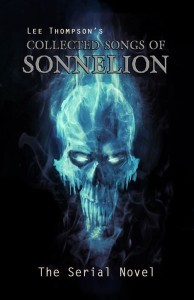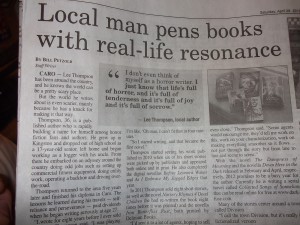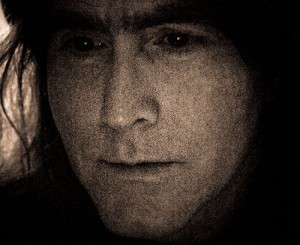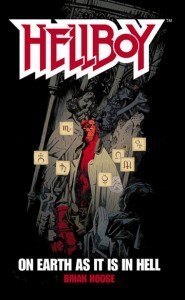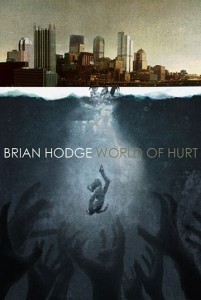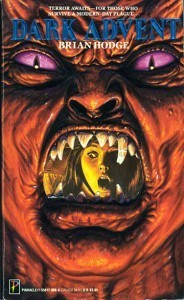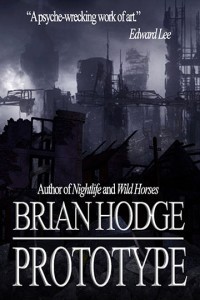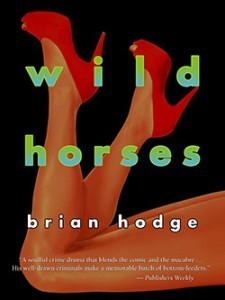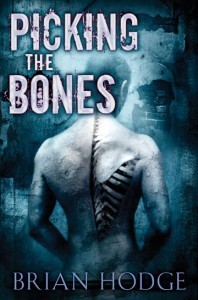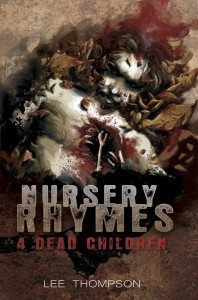Lee Thompson's Blog, page 21
May 8, 2012
Tuesday’s Training: Fear and Doubt
As writers we deal with fear and doubt constantly, both in our creations and in ourselves. The truth is that no one will ever care as deeply about our work as we do. And there will never be enough readers to slate our lust. We fight a constant battle between expectations and reality, constantly on the hunt for a balance that will reward us with a little happiness and keep us one step away from depression.
How do you cope with fear as a creator? How do you brush off doubt?
I’ve had a few fears the years I was writing only for me, to fulfill and discover and complete that ravenous hunger for purpose.
In the old days, those pre-publication days, my number one fear was that I’d never be ‘good enough’ since I was horrible in school. I lacked motivation, direction, inspiration. I did not care about pleasing anyone, least of all myself.
How do we get to the point where we don’t need to hear others saying we’ve arrived to know we have? Or is arriving a crock of bull?
To overcome the ‘will I ever be good enough’ took a few things. Actually selling a lot of work was a big factor, especially to picky publishers who are buried with either short or long manuscripts, and who have to pick the few that they love most. I think part of that hunger to sell to them was because I needed that affirmation since I definitely wasn’t getting it from my family. I also had to understand that question ‘will I ever be good enough’ is a stupid question, really, it’s fucking dumb. Good enough for what? Generalizations don’t give or take anything. They don’t help anything.
I can be as good as my talent and learned skills will take me and no farther, and who am I to ask for more?
I remember fearing being stuck in a box. The truth is I don’t like most genre stuff. I like genre-crossing, I like when a story has it all: horror, tenderness, love, hate, mystery, suspense, imagination, unique characters, pessimism and optimism, darkness and light.
I don’t care about genre anymore now than I did when I started, less even, really. My fear has come true, I must be put in a box because that’s how things are marketed. But I will keep writing what I want to write and as long as people are reading it I found that it doesn’t matter too much what I’m labeled, though it does matter somewhat, because there have been readers who have complained that one of my stories isn’t horror, doesn’t use all the tropes, blah the fucking blah. I don’t think those readers are my real audience and that’s fine because I’m not going to give them what they want in a story. And I’m okay with that because I’m sticking to my guns and writing my hodgepodge style.
As I started selling a lot of work in the last couple years I feared that big fear: Does it matter? It’s true that we all have our gifts, and it’s better to use them than not, but what if I never wrote another word (yeah right!) would it matter? I don’t think it’d make much difference, which is why I think it’s so important to lean toward creating for ourselves first, and we’re lucky if anybody else gets anything from it. Most of us will never touch millions of people with our work, that’s a fact. We’ll be lucky to touch 10,000. But whatever we do, whatever fears we overcome and whatever doubts we have to brush aside, we’ll touch someone if the story is honest because honesty resonates.
Where are you in your writing career? What fears do you fight daily? What doubts keep you awake or do you repeat like clockwork to your closest friends?
How do you balance expectations and reality? I think besides focusing on the craft and telling the stories that live in your heart that balance is what brings happiness. Not success, not praise. Success and praise are fleeting, and worse they’re addictive. We become black holes without the balance, we become desperate. Write for yourself, tell an honest tale, seek balance and be grateful for what your hard work has brought you.
May 4, 2012
Chapter Eleven of Sonnelion
In this Division Mythos novel, which is being serialized on Darkfuse’s website, Red Piccirilli has known madness and magic. They’re in his blood and bound to his soul as much as love and loss are. But when his family moves to the town of Division, Pennsylvania, his father grows distant, his mother troubled, and a murderer roams the countryside.
He searches for meaning and truth while battling his own darkness and rage and despair, but corpses whisper answers the dead only share with one another.
Chapter Eleven of the serial novel THE COLLECTED SONGS OF SONNELION is live! I’m really cooking on writing this sucker now. But I tend to slow down when I hit the last eight or so chapters (I think there will be 30 chapters in this novel.) My young hero, Red Piccirilli, has really found himself in a mess that there’s little chance of escaping. But it’s really going to drive home why he is how he is as an old man in the later books like Nursery Rhymes 4 Dead Children, The Dampness of Mourning, The Patron Saint of Infinite Sorrow.
May 1, 2012
Using Triads in Fiction
Thinking in triads is something I learned from studying music, martial arts, and just observing myself and life in general. How do triads apply to fiction?
They add depth… If you only write about a character’s inner life it can get boring. If you only write about a character’s actions without any thought to the character’s emotions or motivations, they end up looking like (and being) puppets.
Triads create more conflict (which reveals character and develops more story)…
Put two people in a room and they can have a conversation or argument. Put three people (even if one of them is only in a character’s thoughts) in a room and the dynamic is going to change and open up possibilities.
Your character has their past, present and future to think about, agonize over, and rejoice in. And they deal with those things in snippets as the story moves forward. Their past is solid and unmovable, but their present and future are constantly shifting, and there is a lot of interesting, active emotions and actions that can rise from moment to moment. Keep that in mind when brainstorming before you write the story.
Your character has friends, family, and acquaintances. It pays to mention who he loves and who he can’t stand, and most of all… why.
Your character is usually using three senses at the same time in different combinations depending what the setting is (sight, sound, touch/sight, smell, hearing/smell, hearing, touch, etc.)
Your character has had, has, and wants.
Your character has loves, hates, and things he’s lukewarm about.
Your character has their experience, their perceptions and their hunches.
Your character has action, reaction, and introspection.
Now take those triads and put them to work for two or three main characters in your novel and I’ll lay down my hard-earned money that you’ll end up with a very rich and entertaining book.
Plus go check out my FREE serial novel on my publisher’s website. You can see how I use triads throughout the whole novel, in every chapter, in every scene. Then go spread the word about the serial novel because word of mouth helps and I’m a shitty self-promoter.
April 29, 2012
Me in the local paper
Bill Petzold, a reporter for The Tuscola County Advertiser, interviewed me recently. It was a lot of fun because we had music and writing in common, plus it was my first time being interviewed for the paper so that made it special. Here’s a little pic of part of it!
And if you missed my interview with the awesome Brian Hodge. Check it out here.
April 28, 2012
Interview: Brian Hodge
Super happy to have Brian Hodge sharing with us today! He’s one of those writers of original and thrilling ideas, a workhorse with a fluid, confident and subtle style. So far it’s led to 10 novels, over 100 pieces of short fiction, 4 collections, and a small mountain of nonfiction that have been published by Dell, Pocket Books, Delirium, Cemetery Dance, Tor, Pinnacle, Nightshade Books, and others. Almost a regular in every Best-of anthology that’s ever been, this fella knows what works for him and he works it hard. His short collection FALLING IDOLS is one of my favorite reads so far this year. Thanks to Brian for taking the time to answer questions and to anybody who reads, leaves a comment and shares!
1. What is the line between amateur and professional? When do you feel you first passed that mark?
A: The line lies somewhere between accomplishment and attitude, but it’s probably different for everybody. The early stories I sold were all solid validations, but I suppose I felt I’d definitively crossed the threshold when my first two novels sold about three months apart, and that let me quit the job I’d been working the first few years out of university.
2. Who are your influences?
A: Anymore, for me, trying to contemplate that is like trying to isolate how phytonutrients interact. You know, if you eat a good assortment of fruits and vegetables, you take in about 5000 different phytonutrients … but how do they all specifically interact? No one really knows. It’s as complex with creative influences. Some, though, off the top of my head: Early on, Stephen King, Peter Straub, Harlan Ellison, Clive Barker. Here and there, William Shakespeare, Ernest Hemingway, John Steinbeck, Cormac McCarthy, Charles Bukowski, Elmore Leonard, James Hall, Carl Hiaasen. Friends and contemporaries who rubbed off to one degree or another, Poppy Z. Brite, Kathe Koja, Caitlin Kiernan. But a ton of influence has also come through nonfiction, film, music, visual art. I went through a Joel-Peter Witkin phase. More recently, I’ve drawn a lot of nutrition, both for writing and music, from the late Polish surrealist artist Zdzislaw Beksinski.
3. How has your approach to a first draft changed since you started?
A: I don’t think it has, really. The fundamental objective is still the same: to get the story down, more or less in total, by any means necessary, so that you have a tangible blob to start crafting into shape and bringing it in line with its potential. The thing you have going for you early on is naivety and a kind of euphoric ignorance. But you lose that eventually, which has both good points and bad. I do find the first draft process more painstaking than I used to, because the standards I have for myself are higher now. I’m often in a tug-of-war between that and giving myself permission to suck because, after all, it is just the first draft and nobody’s going to see it anyway. So the approach may be the same, but the experience is different.
4. Do you feel your other disciplines have helped your writing craft? If so, in what ways?
A: Undoubtedly they do. Things don’t happen in a vacuum. It’s all synergistic. If you have other creative outlets — I like music and photography — that’s another way of flexing the same core. I’m also in my fifth year of practicing Krav Maga, and that’s led to other physical training offshoots: Brazilian Jiu Jitsu, mixed martial arts striking, circuit workouts, kettlebells, bag work. Something like that can’t help but improve your discipline and focus overall, as well as build up your stamina for getting through the day with a higher level of energy. The more you do, the more you try, the more you learn, the more neural pathways you’re going to form. That can only be a good thing. That can only serve your art and craft.
5. I love your Warrior Poet website. I always enjoy when writers are also great teachers. What led you into teaching? Have you been that way since a child?
A: Teaching runs in the family. There are teachers on both my father’s and mother’s sides, going back at least three generations, everything from university to one room country schoolhouse. Although I can’t say that I see myself as part of that tradition. I just blog and try to convey what I can. I first got into that by being asked to join the roster at Storytellers Unplugged. I liked it and eventually decided to start my own blog, with its own identity, where I can also go in directions that probably wouldn’t be appropriate for SU. Hence the tagline: Writing as a full-contact lifestyle. It’s another way of maintaining a presence.
Although, come to think of it, in a way I occasionally assume a teacher role, very informally, where I train in Krav. Even though I’m in my fifth year, I still do basic classes because you can never drill fundamentals too much. I’ve gotten a number of compliments from new students I’ve ended up partnered with. I’ve just done it long enough that I know what the instructor would be correcting if he or she saw what the new person is doing wrong, so I figure why wait, why let someone continue to drill it wrong in the interim? With one of the highest-level instructors we had, a guy with an extensive military background — a great guy and tremendously creative and effective trainer, and also one of Matt Damon’s trainers for the first Bourne film — there were several times when he apparently didn’t like what he was seeing early in a class, and he’d shuffle a couple of pairings to put a new student with me. Because he knew I’d moderate myself and not try to make this person’s first or second time there miserable.
So while, no, I wasn’t that way as a kid, maybe it’s something that comes on you eventually. You start seeing how you can help bring other people along.
6. Can you pick favorites from your work?
A: My favorites are always the most recent things. But I have enduring warm places in my heart for certain works. Dark Advent, because that was the single best lesson in characters I ever had. Prototype, because it helped put to rest something inside that I’d been trying to get at for years. Wild Horses, because that proved to me that I could go in a totally different direction, and it was so much fun.
On the shorter side, “As Above, So Below,” which I wrote as the capstone for my Falling Idols collection. That left me feeling like I was literally walking in another dimension, plus it recently appeared in The Century’s Best Horror Fiction, so I have to feel mad love for something that put me in that amazing company. “Liturgical Music For Nihilists,” the capstone for my first collection, The Convulsion Factory. That left me highly unsettled, in a good way. Everything that’s part of the Misbegotten story cycle: “The Alchemy of the Throat,” “The Dripping of Sundered Wineskins,” “When the Bough Doesn’t Break,” and World of Hurt, because that’s such a rewarding mythos to keep returning to whenever it feels like it’s time. Last year’s “Roots and All,” from A Book of Horrors, because its source background is very close to my heart and there’s been such a great reaction to it. There are lots more, but I’d be going on all day.
7. For a new reader of your work what three pieces would you suggest they start with?
A: On the horror side, I’d say Prototype. That might be the highest realization of what I wanted to do there. The recent e-book edition contains the preferred text. On the crime side, Wild Horses. Plus the 2011 story collection Picking The Bones. That’s probably the most rounded one, and Publishers Weekly honored it with a starred review, so that’s a good stamp of approval.
8. How do you juggle the many aspects of a writing career? What’s a typical week like? Or is there no ‘typical’?
A: At the week level, it stays pretty typical. But yeah, it has become a lot to juggle. Awhile back I unearthed some old desk calendars from about 15 years ago, and was gobsmacked at how few things I had down to do each day.
Now, in any given week, I might be moving between various long and short fiction projects, nonfiction assignments, blog posts, updating my author web site, serving as the IT manager of my sites and our home network, doing and cataloging research, processing paperwork like contracts and galley proofing and communiques, tending to promotional activities, and so on.
Another thing that’s been really time-consuming is going through Word files and OCR scans of my earliest novels and collections, proofreading and formatting and polishing before they migrate into e-book formats, then getting the covers commissioned and doing the cover lettering. But at least when all that’s done, it’s done.
I find the best way to keep on top of it all is to do the best job I can of managing not just time, but physical and mental energy. It’s taken a lot of experimenting and floundering to get there, but I’ve finally got a system in place that’s working. The time and project management approach that resonates best with me is the one Tony Robbins lays out in his Time Of Your Life program. Then I tackle things in terms of block time: I’m going to do nothing but focus intently on Task X for this hour, these two hours. In between time blocks, I’ll do something as a refresher, to clear the mental slate: meditate, play fetch with our cat, play the didgeridoo, work out or go for a run, water the garden, whatever.
And the start of the day is crucial. That sets the tone. As soon as I get up, I go for a quick walk for physiological reasons detailed in this blog post, but in short, to get revved. By 7:30 I’m at the desk to do an hour of work before breakfast and especially before I go anywhere near the Internet. Establishing that mindset and momentum is vital. And Sundays are for downtime, doing some music, chilling out with Doli and being a couple. It’s important to hit the reset switch.
9. You seem a very calm and focused young man and it comes across in the directness and confidence of your fiction. How important do you think it is to be relaxed, or at peace with yourself, when creating?
A: It’s certainly not a prerequisite. Plenty of people do great work from a state of agitation or a place of pain or unhappiness, and I’ve definitely been there and done that. It’s not necessarily the best plan for lifetime achievement, but if that’s the place you happen to be, it’s still better to work than not, and doing the work may help you claw your way to a better place. So whatever works, whatever fuels you.
If something of mine is coming across with directness and confidence, I’d have to wonder if that isn’t mainly a result of never having stopped trying to refine my voice. By now it’s like a marble statue that’s had years and years of buffing. As I’ve been going these earlier works, I can see that refinement gradually taking shape. I frequently don’t like what I’m finding, but I had to start somewhere. And now I have a much better instinctual sense of what belongs on the page and what just gets in the way, what I can cut and what it might still need. Not that there’s a final destination here. I’ll always be trying to make it better.
As for calm and focused, yeah, I mostly am. Part of that is natural temperament, and the rest might be the Krav as much as anything. Nearly every class ends with a stress drill or exhaustion drill. You do that long enough and a side-effect is something called stress inoculation: It keeps pushing your stress threshold farther and farther away. Mine’s way the hell out there now.
10. Do you set goals each year? Or tackle whatever you feel like as the mood hits you?
A: I don’t think the in-the-mood strategy is a very viable one in the long run, because it’s just too nebulous. Believe me, I’ve tried that, and didn’t end up with much to show for it! Discipline and systems will kick that approach’s ass every time. So yeah, I have long-term objectives. Long, intermediate, and short. Which isn’t to say that I always hit them on time, but the structure is there, so it’s always easy to find true north. In fact, lately, I’ve been finding that the more I nail that part down, the more things come together.
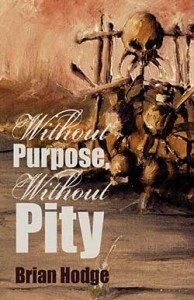
11. What is your latest published work?
A: That would be a novella called Without Purpose, Without Pity, that I did for Delirium Books, the longest thing I’ve done that’s still shy of novel length. We’re in between formats on that one. The e-book version became available at the beginning of April, and the hardcover will be released in June.
It’s a weird combination of elements. It’s set in the near future, after Las Vegas has hit the wall in terms of being a sustainable city. It isn’t, really, because of its water needs relative to the available supply. Even since the e-book has come out, Nevada has approved a plan to steal other people’s groundwater and pump it in from 300 miles away. So I’ve just projected the dystopian aftermath of a worst-case scenario, after an economic and environmental collapse. Layered atop that is this Lovecraftian element that’s cut the area off from the rest of the world, and it all unfolds through the perspective of the world of pro fighting, in particular what’s going on with this former heavyweight contender whose body has undergone a radical change after he disappeared in the desert for a week.
12. Terrific little book. I read it a week ago. What do we have to look forward to next?
A: In addition to Without Purpose, Without Pity, I’m putting together a collection of crime fiction called No Law Left Unbroken, that should be ready in a few months, exclusively in digital format. I’ve also done a couple portions of the second book in editor Stephen Jones’ Zombie Apocalypse trilogy, what he’s dubbed mosaic novels. That was great fun to work on, and will be out in the fall.
Some short works here and there: There’s a piece I wanted to do ever since I saw those HBO Iceman Tapes documentaries on mob killer Richard Kuklinski, based on an incident in his life. That’ll be in an anthology called Danse Macabre, edited by Nancy Kilpatrick. A vintage reprint in John Skipp’s Psychos. Again, autumn for those. Also, a piece for an upcoming end-of-the-world special issue of Cemetery Dance magazine. This one is a great concept: They’re tapping some of their favorites who’ve already destroyed civilization once, and having us do it again.
CD Publications is also doing a big hardcover edition of my early post-apocalyptic novel Dark Advent, which is going to be gorgeous. I did an extensive polish on that one, because it was such an early work, and fixed a couple of logic errors, so by now it amounts to a brand new draft. Like a remastered edition, the music’s the same, it just sounds better.
And, as mentioned already, I’m converting my backlist books over to digital editions, managing to get through one a month lately, and some are in the queue for audio, as well.
So all that covers the rest of the year, and maybe a little beyond, and later this year I’ll finally complete the next novel that’s been taking so stupidly long.
Thanks so much for the fantastic interview and your time, Brian!
There you have it. Go grab one of his books!
Brian Hodge Links
Web site.
Warrior Poet Blog.
Facebook.
April 27, 2012
Chapter 10 – The Collected Songs of Sonnelion
Come one, come all. Enjoy the spectacular adventure of a boy brandishing magic and mayhem! It’s easy and easily dangerous!
Up to Chapter 10 now and things are really ramping up. Thanks to everybody who has been following along and for everybody’s support!
Spread the word if you’re enjoying it.
Rock on, people.
Breathe life into your dreams.
April 24, 2012
Tuesday’s Training: Conflict
Been sick with the flu the past week so going to keep this short because I don’t have much focus or energy.
Conflict builds story and it’s wonderful how many different types of conflict can be going on at the same time, all doing their share to build the story and help the characters grow.
Types of conflict: Internal (for every character), External (for every character).
Internal conflicts:
It’s good to know how your character feels in every area of his life.
Where is he lacking?
Where does he excel?
What is his stance on all of these things: Relationships, income, dreams, children, friendships, community, household?
Why is he conditioned that way?
And how can you mess with his security in a number of them? Especially the ones most threatening to his identity.
External conflicts:
These can be slight annoyances like slow traffic when he’s in a hurry, a lack of understanding from a spouse or friend, a child who won’t obey. Or they can be life-threatening situations that test his strength and wit like being lost in the mountains.
Here are a number of common (yet very real and very usable) conflicts:
Divorce.
Parenting.
Work.
Friendships.
Betrayals.
Lies.
Honesty. (Sometimes characters don’t want to hear the truth. It’s easier to stay safe in denial.)
A fist fight.
A temper-tantrum.
Laziness. (When pitted against another character who has a strong work ethic, like a parent, friend, sibling, or boss.)
Murder.
Cheating.
Stealing.
Running away/Quitting.
Passive-aggressiveness.
April 17, 2012
Tuesday’s Training: Purpose and Value
Since I’m working on this book (Chasing the Dragon) for newbie writers, my brain is constantly shifting gears and cruising down one avenue before coming to some side street that looks interesting, where maybe the buildings are a little worn, and the light a little fuzzy, and I know if I head down that way I might find myself on an adventure.
I’m going to do that on my website here every Tuesday, make a post about writing, imagination, the creative process, or some aspect of the sometimes troubling world of endless possibilities.
I’m thinking a lot about my own career right now and asking hard questions of myself. Part of it is trying to work out how to find my audience. I believe those who enjoy work by my favorite writers would enjoy my work, but who’s to say. But I look at all of my biggest heroes (Tom Piccirilli, Bruce Lee, Alfred Hitchcock, Jimi Hendrix, Rod Serling) and I know that they had purpose and they had value.
What is my purpose as a writer? What is yours?
What value do I bring to readers? What do you?
These aren’t easy questions. I’ll bet their multi-faceted beasts that reveal more and more faces as we get our hands on them and start turning them around to study their strange expressions and stranger souls.
What is my purpose and value? What are yours?
Saying I want to connect, or banish my demons, or release heartache, or entertain readers, are all easy answers. And all true. But what makes me want to connect? What drives me to banish my demons? Why do I have to release the heartache? Why do I care about entertaining when I could go learn to play golf instead?
I know that each reader only gets as much out of a book as they bring to it.
I don’t know my purpose yet.
I don’t know my value.
But I’m a very confident writer because I put a lot of time into studying every aspect of the craft. And I enjoy all kinds of fiction. I know part of my purpose is hidden in that. I want it all in each story I write: love, sorrow, laughter, tears, friendship, betrayal, honesty, lies, warmth, tenderness, comfort and terror. Yeah, that’s part of my purpose… to hit all the big notes, the ones that we feel down in our core that make us pause and give birth to being alive instead of stumbling around numb.
And maybe our value is interwoven with our purpose.
If I can hit the big notes like a lot of my heroes do/did, maybe the value is helping people reconnect with themselves!
Damn. I’m good. Yes sir. Now I’ve gotta go work on helping people reconnect with themselves in this serial novel.
But think about your own purpose and value. They may not seem important, but I’d lay money down that they are because they help define us at our most fundamental level.
Purpose and Value
Since I’m working on this book (Chasing the Dragon) for newbie writers, my brain is constantly shifting gears and cruising down one avenue before coming to some side street that looks interesting, where maybe the buildings are a little worn, and the light a little fuzzy, and I know if I head down that way I might find myself on an adventure.
I’m going to do that on my website here every Tuesday, make a post about writing, imagination, the creative process, or some aspect of the sometimes troubling world of endless possibilities.
I’m thinking a lot about my own career right now and asking hard questions of myself. Part of it is trying to work out how to find my audience. I believe those who enjoy work by my favorite writers would enjoy my work, but who’s to say. But I look at all of my biggest heroes (Tom Piccirilli, Bruce Lee, Alfred Hitchcock, Jimi Hendrix, Rod Serling) and I know that they had purpose and they had value.
What is my purpose as a writer? What is yours?
What value do I bring to readers? What do you?
These aren’t easy questions. I’ll bet their multi-faceted beasts that reveal more and more faces as we get our hands on them and start turning them around to study their strange expressions and stranger souls.
What is my purpose and value? What are yours?
Saying I want to connect, or banish my demons, or release heartache, or entertain readers, are all easy answers. And all true. But what makes me want to connect? What drives me to banish my demons? Why do I have to release the heartache? Why do I care about entertaining when I could go learn to play golf instead?
I know that each reader only gets as much out of a book as they bring to it.
I don’t know my purpose yet.
I don’t know my value.
But I’m a very confident writer because I put a lot of time into studying every aspect of the craft. And I enjoy all kinds of fiction. I know part of my purpose is hidden in that. I want it all in each story I write: love, sorrow, laughter, tears, friendship, betrayal, honesty, lies, warmth, tenderness, comfort and terror. Yeah, that’s part of my purpose… to hit all the big notes, the ones that we feel down in our core that make us pause and give birth to being alive instead of stumbling around numb.
And maybe our value is interwoven with our purpose.
If I can hit the big notes like a lot of my heroes do/did, maybe the value is helping people reconnect with themselves!
Damn. I’m good. Yes sir. Now I’ve gotta go work on helping people reconnect with themselves in this serial novel.
But think about your own purpose and value. They may not seem important, but I’d lay money down that they are because they help define us at our most fundamental level.
April 15, 2012
One Year Anniversary
That’s right, we’re approaching the one year anniversary since Delirium Book’s released NURSERY RHYMES 4 DEAD CHILDREN. The official date is May 17th.
To be honest, it feels like five years have gone by since last summer.
So much has happened in the last twelve months (from the release of NR4DC to selling 7 other books and now working on this serial novel THE COLLECTED SONGS OF SONNELION.) Those close to me know how often I’ve talked about how surreal it is to toil away for nearly a decade without any validation, and then for the scales to tip in my favor where everything I’m writing is selling within a matter of months. I’m guessing it’s somewhat like parents who want to birth a child so bad and they try for years, and they lose some along the way, and a lot of their hope and pride with it, until one day the miracle happens. Totally unexpected. Sometimes when they’re at their lowest point because they’ve already convinced themselves they’re not worthy or not good enough or it’s not meant to be. Like them, secretly I felt like a failure and every little quip from family just burned the hell out of me. Partly because I didn’t want to admit they might be right, partly because I knew from other ventures that if you want something bad enough you do whatever it takes to improve. And before you know it you start growing by leaps and bounds, and it’s only once you pause to look back at the tracks you’ve left in the sand that you truly see how far you’ve come.
The good news for a fiction writer is that there is no finish line. We do this until we die and if we’re fortunate enough maybe the work will live on a while after us. Maybe someone who read a novel of ours rereads it decades later and they get that glow of nostalgia in their eyes as they remember what was going on in their life the first time they read said book. If we’re going to dream, why not dream big?
It’s still surreal, especially since things have been snowballing since the summer of 2011. And I know I’m very fortunate that Shane Ryan Staley saw something special in my work and he has been so willing to help me and my career. I owe him a lot for that even though he’s the one cutting the checks. And I’ve had tons of others support me and make this dream work–editors, readers, heroes, writers, reviewers–who have helped give my career legs and taught it to walk. I thank a lot of them in the acknowledgements of books, some in dedications.
Sometimes it’s difficult to slow down when you feel like you’re building steam. It’s so easy to get caught up in the rush when you have news to share every week or every other. And sometimes I felt as if I’d burn out because the stories were burning up inside me, my past and every decision I’ve ever made, every thing I’ve ever seen, howled and sought release.
After we write and sell eight or ten books we think, Hey, time is really flying by. I wish there was a way to slow it and appreciate each little success fully, but the wind that carries us keeps roaring and the drive and hunger hurt if we don’t tend them.
I’m guessing it’ll burn me up one day. I’ve always had an all-or-nothing personality.
Five years from now I’ll probably have thirty books sold and released and hopefully entertaining some and making others feel and others dream all kinds of dreams. We’ll see.
All I know is I have a lot to learn yet, but learning gets easier when we enjoy most of the process.
What are your dreams? How are you going to go about making them come true?


